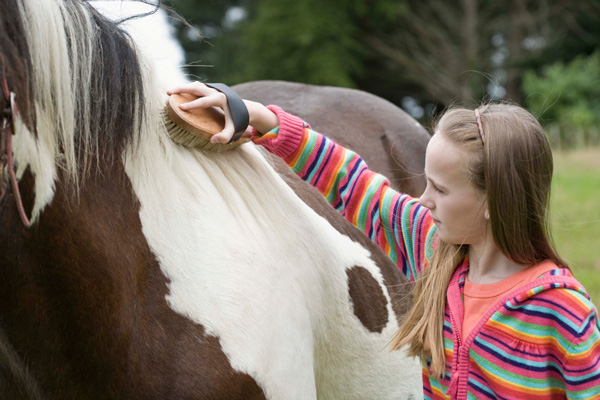
The barn is full of boarders and you have a waiting list. With all the stalls full, you realize you need to hire help to care for all the horses on the property, as well as the property itself. Once you’ve made the decision to hire, you’ll need to establish the rate of pay. Should you offer minimum wage or a higher rate of pay?
Whether you’ve grown slowly or planned an expansion, you know profits on boarding services alone are small. It’s tempting to offer the lowest wage possible, but keep in mind “you’ll get what you pay for.” And if you are going from you doing all the work (to your high standards), can you actually get someone to work to your standards at minimum wage?
The first step to determining what to pay an employee is to consider what you’d like that employee to do. Will he/she fill water buckets, carry hay or clean paddocks? These tasks require little to no expertise, and on-the-job training can provide the necessary skillset. An individual hired for this type of position might be a minimum wage employee.
However, if you are looking for someone who can handle horses, groom and tack up, identify when a horse is “off,” prepare feed or run the facility in your absence, think long and hard about the wage offered.
“You don’t have to pay every staff member the same wage,” said Deb Best, owner of Deb Best Practices. “Wages can differ based on an individual’s years of experience and knowledge.”
It might make sense to hire a laborer at minimum wage to perform less-skilled tasks and leave you free to handle the horse-related jobs. On the other hand, you must expect to pay higher compensation for experienced people.
“If you’re not paying them a living wage and they are good at what they do, they will quickly get a job somewhere else,” Best added.
So the first step before you hire someone is to determine what jobs you don’t want to do any more, or don’t have time to do. The next step is to create a job description so that you and the persons you are interviewing know what is expected of them. You will have different legal needs whether you are hiring a farm laborer, groom or trainer. Talk to your attorney and have written agreements when necessary (i.e., a trainer is using your facility and is on your payroll versus an outside trainer that just pays you a percentage of each lesson taught at your facility).
Know the laws in your state that determine whether you have employees or contract laborers. (See Before You Hire Know Whether You Are Getting Employees or Contractors.) You also might want to read Hiring Horse Farm Employees to learn more about the paperwork required.
Offering a fair wage is important in attracting the right employee for your stable. But before you hire someone, make sure you both know what the tasks are for that job, what the time commitment is, whether there is travel, evenings or weekend work involved, and so on.
Offering a fair wage is more than attracting an employee, it’s also about retaining the employee. Boarders appreciate consistency and will take comfort in knowing that you hired the right person and that he/she is qualified to care for their horse.


